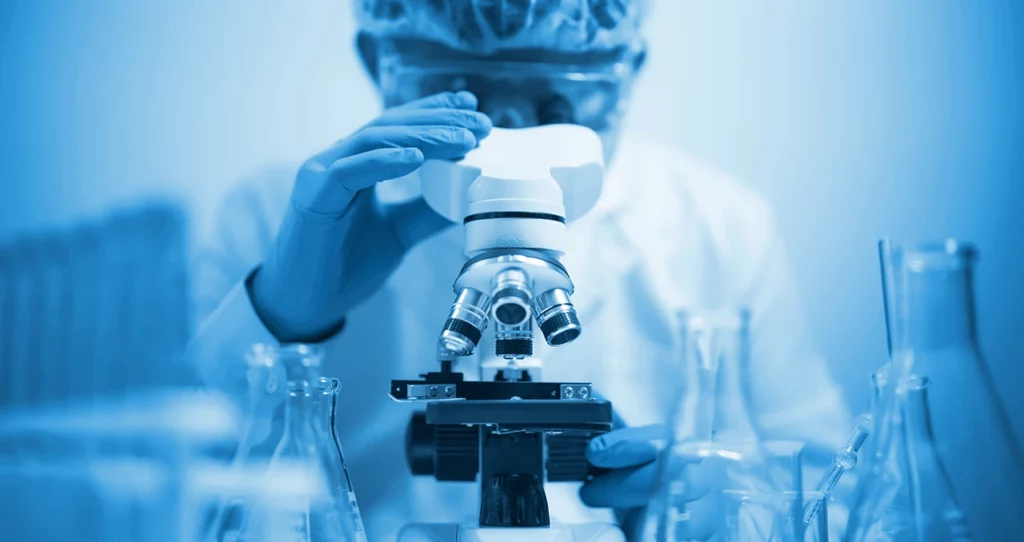The study of microscopic organisms, which is microbiology, focuses on analyzing what is not visible to the naked eye, such as bacteria, viruses, fungi, protozoa, and algae.
These types of organisms play a crucial role in ecosystems, human health, the industrial sector, and scientific research.
What does microbiology study
Specifically speaking, microbiology focuses on the study of microorganisms by analyzing their structure, physiology, genetics, ecology, and function in different environments.
There are various branches within microbiology, but when addressing the clinical and medical field, it is dedicated to studying microorganisms that cause diseases in humans and animals, as well as developing methods to prevent, diagnose, and treat these infections.
Medical microbiology
Medical microbiology is a subdiscipline that specializes in the study of microorganisms responsible for infectious diseases in humans; it is an essential field in healthcare, as it deals with pathogen identification, the development of diagnostic tests, the discovery of antimicrobial treatments, and the implementation of preventive measures.
Among the main areas of interest in medical microbiology are:
- Diagnosis of infectious diseases: uses techniques such as microbiological cultures, serological tests, PCR or polymerase chain reaction, as well as genetic sequencing to identify infectious agents.
- Study of pathology: analyzes the mechanisms by which microorganisms cause disease, including their adhesion to host cells, toxin production, and immune system evasion.
- Treatment development: involves researching new antibiotics, antifungals, antivirals, and other therapeutic agents, with a particular focus on addressing antimicrobial resistance.
- Epidemiology: studies the distribution and determinants of infectious diseases, helping to control outbreaks and pandemics.
- Vaccinology: develops vaccines to prevent diseases caused by pathogenic microorganisms.
Beyond the fight against infectious diseases, microbiology also plays a crucial role in the study of the human microbiome, which is the set of microorganisms that inhabit our bodies and influence overall health.
What is bacteriology
Within microbiology, there is a branch called bacteriology, which is dedicated to the study of bacteria. This group of microorganisms is extremely diverse, with both beneficial and pathogenic species for health.
Bacteriology analyzes the shapes and structures of bacteria, bacterial metabolism, genetics, their interaction with other organisms, and identifies bacterial species responsible for various human diseases, such as Escherichia coli, Mycobacterium tuberculosis, and Staphylococcus aureus.
Microbiology is a fundamental field for understanding the microscopic world and helping to fight infectious diseases, creating a profound impact on the health of living beings.
At the ABC Medical Center’s Clinical Analysis Laboratory, we can provide you with specialized care. Contact us!



